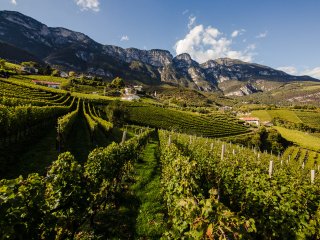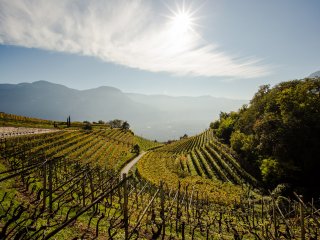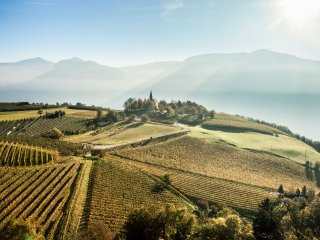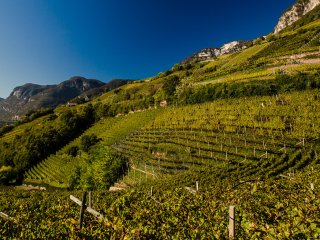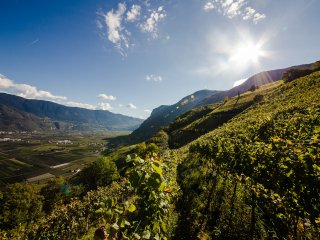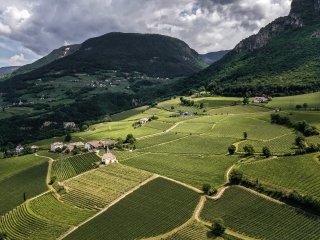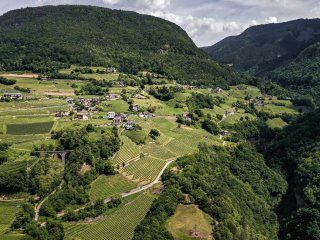Our vineyards and the diversity of the nature that hosts them is our highest asset. We value and respect them, which is why sustainable practices have taken center stage in our philosophy for several years.

Together with our 190 members, we have developed a comprehensive sustainability program. This is based on the three fundamental ideas of sustainability, with the goal of creating a sustainable chain of production from the work in the vineyard through to the final product. The sustainability program is implemented in the following three areas.

United we stand.
Cooperative
As a cooperative, we are obligated to our 190 small-structured family farms and our 27 staff members. Sustainable practices are essential in guaranteeing reliable earnings and social security over many generations. The basis for this is our small structure and the 190 families who cultivate these 190 ha of vineyards with the gentleness of their hands.
Strengths:
- The esteem for our unique terroir, craftsmanship and inestimably valuable experience in the vineyard are handed down from generation to generation.
- Our smallholdings (ca. 1 ha per member) make possible gentle cultivation by hand, during the growing season as well as at harvest time.
- The well-being of all stands at the forefront, not individual profits.
- All members are equal peers – each has a vote.
We work with nature.
Winegrowing
We find that true sustainability must be lived. The conviction of each individual is essential. In light of this, we stand in close contact with our members to offer advice and support. Since 2015, we have collectively followed the below-mentioned sustainable winegrowing measures, which are being continuously expanded and optimized:
- Soil loosening and green manure through sowing of various leguminous plants for nutrient supply, preservation of biodiversity, increased fungus resistance and, as a result, increased grape quality.
- Plant protection following the minimum principle: as little as possible and as much as necessary. Use of natural products such as sex confusion pheromones in combatting the vine moth, sulfur, copper and other biologic-organic plant protection measures, and reduction of the use of chemical plant protection measures.
- Continuous measurement of vine water demand and use of water-conservative drip irrigation.
- No use of mineral fertilizers.
- Use of monitoring systems for continuous control of the health status of the vineyards. This makes targeted use of necessary interventions possible.
- Leaf stripping for better air circulation. This promotes risk reduction for certain diseases.
- Reduction of herbicide use: 100% for TERROIR wines, only in exceptional cases for SELECTION wines (max. one herbicide application per year in spring or fall, max. 30cm wide).
- Marketing of the fungus resistant variety Bronner. This variety can be used in areas at risk for spray drift, eliminating the need for plant protection measures.
We use existing resources.
Winery
The use of sustainable production methods is a central principle also in the cellar. The following measures and continuing education of our staff strengthen our sustainable way of thinking.
- Water supply from our own source.
- Reduction of water use through preparation of the cooling water.
- Heat recovery from compressors.
- Use of gravity in the cellar, preventing the use of frequent pumping.
- Use of unbleached, undyed and chemical-free corks from certified sustainable forests (FSC).
- New winery construction following low-energy standards as well as energetic restructuring of existing buildings.
- Charging station for electric cars and bikes.
- Suppliers who work sustainably and their products are given preference.


